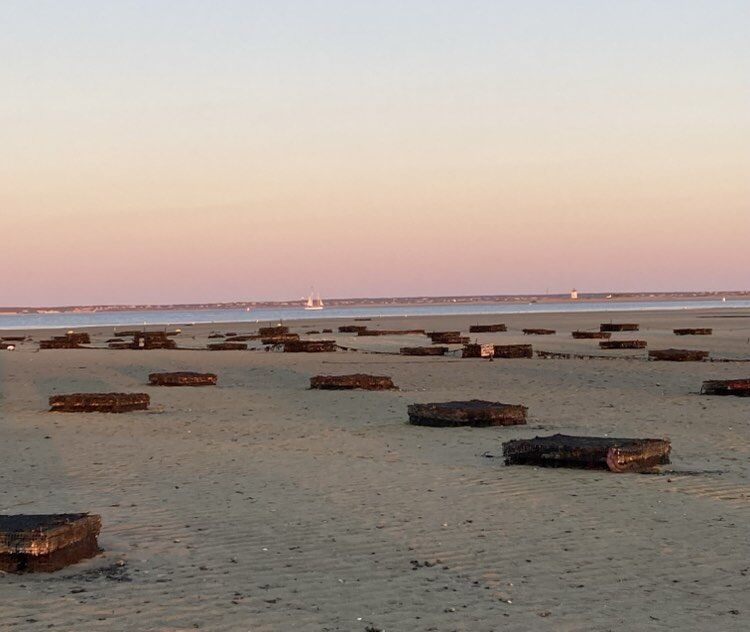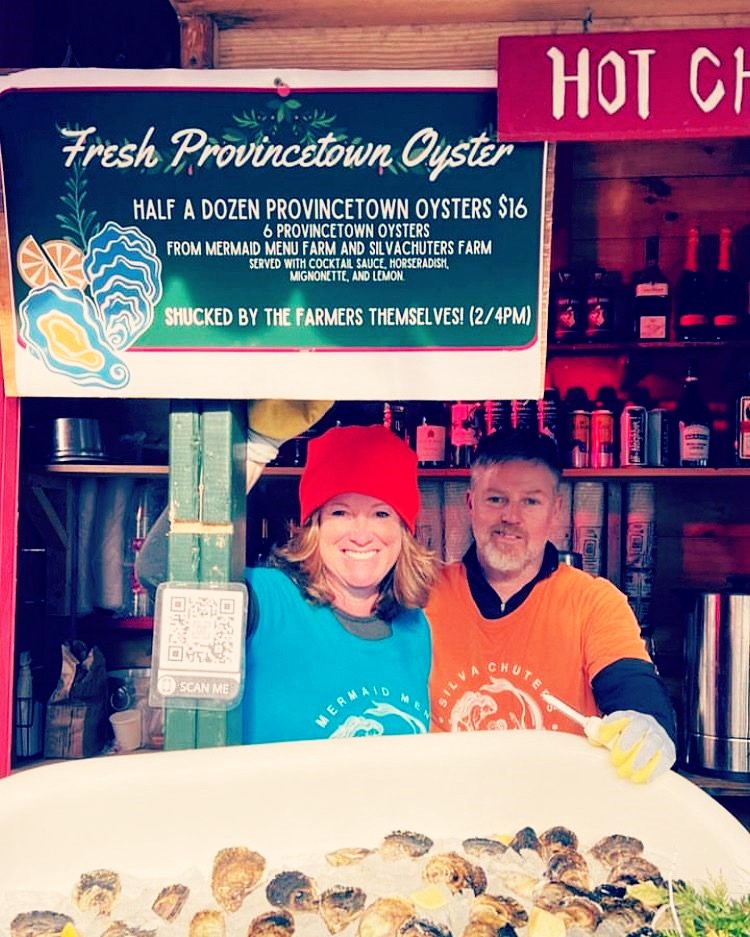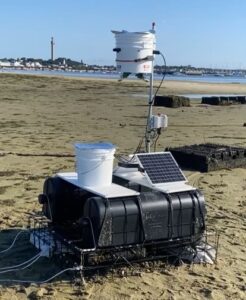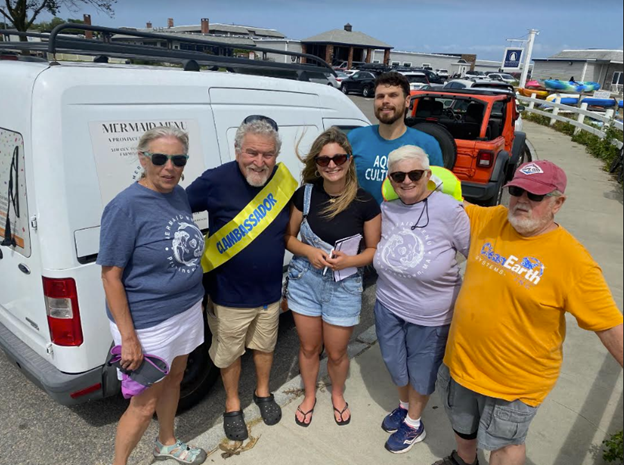Shell-abrating Life on Cape Cod

Just another day on the oyster farm in Provincetown, MA. Photo courtesy of Mermaid Menu.
Provincetown, MA–at the tip of Cape Cod–was once a thriving fishing town but now relies more on tourism. Aquaculture farmers like Mermaid Menu are working to restore the town’s seafood reputation. The Chute family, owners of Mermaid Menu, farms oysters and other shellfish on Provincetown’s tidal flats—a popular spot for tourists.
“The tidal flats are shared community property, and we’re grateful to farm here,” says Kalliope Chute, co-owner of Mermaid Menu. “It gives people the chance to see how their food goes from the farm to their table.
Marketing the Oysters and the Oyster Farm

Kalliope and Michael Chute promote their oysters at The Canteen in Provincetown, MA. Photo courtesy of Mermaid Menu.
Selling oysters is Mermaid Menu’s primary source of income. They supply oysters to local restaurants like The Canteen, as well as wholesalers like Cape Tip Seafood and Big Rock Oyster Company.
Like many farms, the Chutes have incorporated agritourism into their business. They run frequent oyster farm tours, which have become their second-largest income stream. Visitors get a hands-on experience by seeing the farm, touching the oysters, and learning about the process. Mermaid Menu also offers unique activities, such as plein air painting and yoga on the sandbar.
“We love showing people where their food comes from,” says Michael Chute. “They can see the oysters on the farm and then head into town to enjoy them at a restaurant.”
Mermaid Menu is active in the community, supporting local events like the Mayflower Trolley food tour and donating tours for fundraisers. “We also swap services for advertising,” says Kalliope. For example, they ran a raw bar at the Provincetown Portuguese Festival + Blessing of the Fleet to gain exposure.
Anchored in Provincetown's Maritime History
 Michael’s deep connection to the sea goes back to his great-grandfather, a fisherman from the Azores. He spent summers in Provincetown and learned lobstering from his grandfather.
Michael’s deep connection to the sea goes back to his great-grandfather, a fisherman from the Azores. He spent summers in Provincetown and learned lobstering from his grandfather.
Kalliope brings her passion for environmental sustainability from her work as a recycling program manager. Oysters, being natural water filters, help improve water quality—a critical benefit for the ecosystem.
“We aim to keep our carbon footprint low,” Kalliope explains. They’ve partnered with groups like Mycobuoys and the Center for Coastal Studies to develop sustainable practices, such as using biodegradable materials and innovative tools like a “laser scarecrow” (see photo) to ward off predators while protecting the bird population.
Shuck and Awe: Nurturing Oysters from Seed to Table
Like farming on land, oyster farming requires care and maintenance. Oysters are raised in bags or cages to give them room to grow and protect them from predators. Equipment needs regular cleaning, and oysters must be sorted by size.
Mermaid Menu began farming in deep water but later secured a grant to farm on the tidal flats, which makes the work easier. Now, the deep-water site serves as a nursery for young oysters, which are transferred to the flats when they’re strong enough to survive on their own.
Using "Clambassadors" to Educate the Public

Mermaid Menu hires part-time “Clambassadors” to educate the public about how oysters are raised and protect the farm. From left: Penny, Dennis, Molly, Elise, Donald, Thor (in back). Photo courtesy of Mermaid Menu.
Education plays a crucial role in the Chutes’ mission. Since their farm is located on public land, they often interact with tourists who walk the flats. With the help of a grant from Provincetown’s Economic Development Commission, they launched a unique “Clambassador program.”
The clambassadors educate tourists about aquaculture while keeping them from disturbing the farm. They also hand out coupons for discounts on local raw bar items. This not only helps protect the farm, but also encourages people to try the oysters they’ve learned about.
Kalliope has also started a 4-H club called The Culture Club to teach local children about aquaculture through hands-on science projects.
Looking Ahead to a Blue (Industry) Future
The Chutes are optimistic about the growth of aquaculture and other water-based activities that contribute to sustainable livelihoods, known as the “blue industry.” They hope to gain a retail license to sell oysters directly to customers and expand both their farm and educational offerings.
Provincetown oysters are known for their clean, briny flavor, and the Chutes are committed to making them as famous as Wellfleet oysters. “We’ll continue to promote our Provincetown oysters until people start asking for them by name,” Kalliope says.
